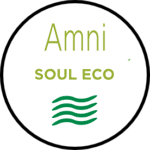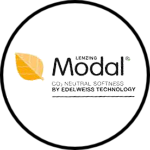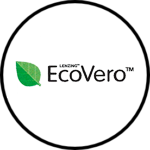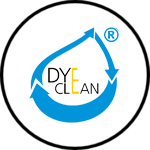At Kalimo we are committed to transitioning our manufacturing processes in accordance with a climate-friendly economy and our management with social responsibility. We recognize that this is a major challenge, but we are taking the steps to continuously improve with sustainability as an essential factor.
Technical
We partnered up with selected suppliers to build fabrics that are made with sustainable fibers, such as: Amni Soul Eco by Rhodia, Lycra Ecomade by Lycra, Viscose Ecovero and Modal by Lenzing, and Livaeco by Birla.
-

Amni Soul Eco
“Unlike other fibers that take decades to decompose, Amni Soul Eco takes approximately five years to break down once disposed in landfill, reducing the environmental impact and ensuring a better world for future generations”
-

Modal Lenzing
“TENCEL™ Modal fibers are predominantly manufactured from the renewable source of raw material beechwood. Sourced from sustainable forest”
-

LYCRA® EcoMade™
“LYCRA® EcoMade™ yarn is the first recycled yarn from the LYCRA company. Produced with pre-consumer recycled materials”
-

Viscose EcoVero
“LENZING™ ECOVERO™ fibers are derived from sustainable wood and pulp, coming from certified and controlled sources”
-

Livaeco
Livaeco by Birla CelluloseTM fiber is sourced from FSC® certified sustainable forests. It is made with lower water consumption and gas emissions.
-

Amni Bio
Bio Amni its first partially bio-based polyamide 5.6 by Solvay, it is produced using bio-surced monomers and can reduce energy use by up to 40% during low temperature dying process.
Kalimo fabrics made with Amni Soul Eco and Lycra Ecomade yarns have a textile chain that resides within the Country, cooperating for less GHG emissions and less energy use.
Certifications
On top of partnering up with different yarn suppliers to build fabrics that are more sustainable, we also make sure safety is our priority offering certified fabrics styles.
-

DyeClean
DYE CLEAN® is an innovative, saving, and sustainable reactive dyeing process, which consists in reusing the same dyeing liquor for many lots and shades, that is the most salted and polluted liquor dyeing of the entire reactive dyeing process.
Environmental
Kalimo follows the local environmental regulations. It is our goal to continuously improve and go beyond the requirements, being a sustainable reference in our country.
-
Printing
Kalimo specializes in digital printing, an efficient process that uses no dye paste and significantly less water compared to traditional methods.
-
Water
Kalimo values the preservation of natural resources. The water used in the manufacturing process is treated to remove chemicals, oil, and dye before returning to the environment. Often, lighter dyed water is reused for darker batches.
-
Energy
Kalimo uses clean natural gas energy in the manufacturing process. The heat generated from the process is reused saving 20-30% energy and the exhaust gases are treated to reduce emissions; At Kalimo we have a vertically integrated structure that allows us to knit and finish our fabrics in house, contributing for less GHG emission and energy usage.
Social
We value diversity. Number of women employees: Office: positions with higher qualification, including São Paulo (BRA), Rio de Janeiro (BRA), Los Angeles (USA), and Guimarães (PT):
At Kalimo we donate unused fabrics to non-profit organizations such as schools and city districts around Brazil.
ESG
ESG
A set of practices and standards aimed at assessing whether an organization’s operation is sustainable, socially conscious, and adequately managed.
Includes components related to the structuring of a fairer culture and administration. At Kalimo, the criterias are:
-

Environmental
Care with air and water pollution;
Reduction of waste and consumption of energy resources;
Reverse logistics of products;
Negotiation policy with suppliers.
Solid and liquid waste management to prevent soil, water, and air pollution;
Reduction of consumption of natural resources;
Changes in product packaging aiming for recyclable and compostable options. -

Social
Turnover and absenteeism rate;
Corporate benefits in addition to salary;
Competitive remuneration with the market;
Training and development programs;
Customer relationship management;
Corporate policies related to diversity and inclusion, as well as harassment prevention;
Employee health care;
The relationship with suppliers.
Welcoming culture, which offers psychological security and emotional well-being for employees, in addition to fostering a balance between personal and professional life;
Safety and sustainability in the company’s facilities, both for employees, customers, and consumers; -

Governance
Financial and accounting transparency; Risk management;
Complete and honest financial reports; Anti-corruption practices;
Fiscal responsibility;
Development of a compliance system;
Management of the organization’s corporate risks including operational, economic, social and environmental aspects;
Internal practices and with the market that reinforce the principles of transparency and ethics.
